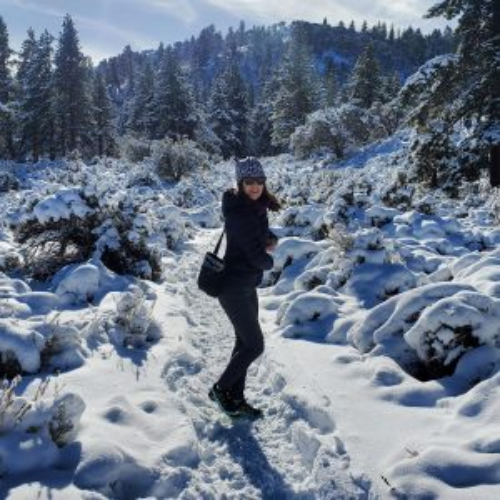Megan I.

Over the course of several years, I reached out to multiple medical providers because of persistent abdominal and back pain and a “rancid” feeling in my abdomen. Rather than order imaging or tests, providers encouraged me to take an antidepressant to treat my distress. After many rejected attempts at diagnosis, I resigned myself to the “diagnosis” that this was all in my head, though I didn’t believe it. Finally, in 2021, I found a new provider who believed my experience was real and began diagnostic tests.
On March 7, 2021, I went for a 16-mile trail run through the mountains near my home. I frequently keeled over with pain, which had become the norm for me. The following morning, I went in for a scheduled CT scan. A few hours later, as I sat in my office at work, I received a call urging me to rush to the hospital, or my kidneys would fail. The CT scan had revealed severe hydronephrosis and a ureteropelvic junction (UPJ) obstruction that my surgeon told me had likely existed for many years, if not since birth. I had developed severe sepsis. (Sepsis and Kidney Failure)
I remember the ED doctor looking at me, baffled, and saying, “You’re very, very sick. I don’t understand how you’ve been functioning.” I had emergency surgery to drain my kidney of infection and was hospitalized for several days on IV antibiotics. I was discharged home with a midline for self-administering IV medications and had a visiting infusion nurse for weeks. In subsequent months, I had two more kidney surgeries, was on long-term antibiotics, and was hospitalized for a second time with severe sepsis. I continued to work full-time throughout, and that was hard on me. I wish I had more time to take care of myself and heal.
I am now learning to live with the chronic conditions associated with the loss of kidney functioning. I used to be a distance trail runner and mountaineer, but because of the physical impact of sepsis, I can’t currently do a lot of the things that brought me meaning, connection, and joy. This has been challenge to adapt to, but has also given me a clearer perspective on what truly makes a life well-lived.
These have been years of loss and shattered dreams, and I’m still on my journey of acceptance.






























